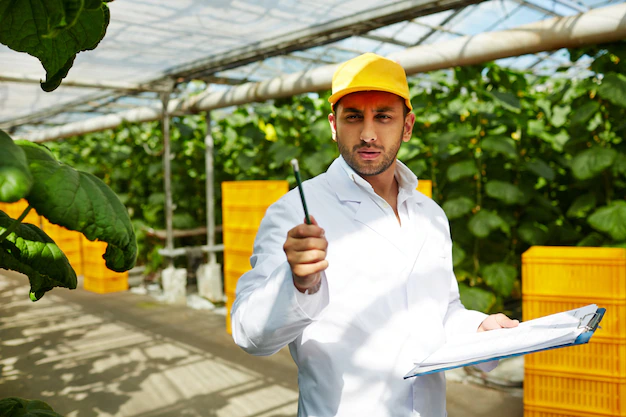- Role and Responsibilities: Agricultural inspectors are responsible for ensuring that agricultural operations comply with local, state, and federal regulations. They inspect farms, food processing facilities, and agricultural products to assess their safety, quality, and adherence to standards.
- Education and Training: Most agricultural inspector positions require a bachelor’s degree in agriculture, biology, or a related field. Some positions may also require specialized training or certifications in areas such as food safety or pest management.
- Fieldwork and Travel: Agricultural inspectors spend a significant amount of time in the field, visiting farms, ranches, and other agricultural sites. This job often requires travel within a specific region or jurisdiction.
- Inspection Procedures: Agricultural inspectors conduct inspections to ensure compliance with regulations related to crop cultivation, animal health, pesticide use, food safety, and environmental protection. They may collect samples, conduct tests, and review documentation to verify compliance.
- Documentation and Reporting: Inspectors maintain detailed records of their inspections, including findings, violations, and corrective actions. They also prepare reports and communicate their findings to farmers, agricultural businesses, and regulatory agencies.
- Knowledge of Regulations: Agricultural inspectors must have a comprehensive understanding of local, state, and federal regulations pertaining to agriculture, food safety, and environmental protection. They stay updated on changes in regulations and may provide guidance to farmers and businesses to help them meet compliance requirements.
- Communication Skills: Effective communication is essential for agricultural inspectors. They interact with farmers, business owners, and regulatory authorities, explaining regulations, addressing concerns, and providing recommendations for compliance.
- Problem-Solving Abilities: Agricultural inspectors often encounter complex situations and issues related to pest control, disease management, and environmental impact. They must possess strong problem-solving skills to assess risks, propose solutions, and make informed decisions.
- Physical Demands: This job can be physically demanding, as inspectors may need to walk or climb in outdoor environments, lift and carry equipment, and work in various weather conditions. They may also need to handle animals or agricultural machinery.
- Career Outlook: The demand for agricultural inspectors varies based on factors such as regional agricultural activity and government funding. Generally, there is a need for inspectors to ensure food safety and compliance with regulations, making this occupation a vital part of the agricultural industry.
It’s important to note that specific job requirements and responsibilities can vary depending on the region and the organization employing agricultural inspectors.
Join 'Farmers Mag' WhatsApp Channel
Get the latest Farming news and tips delivered straight to your WhatsApp
CLICK HERE TO JOIN






